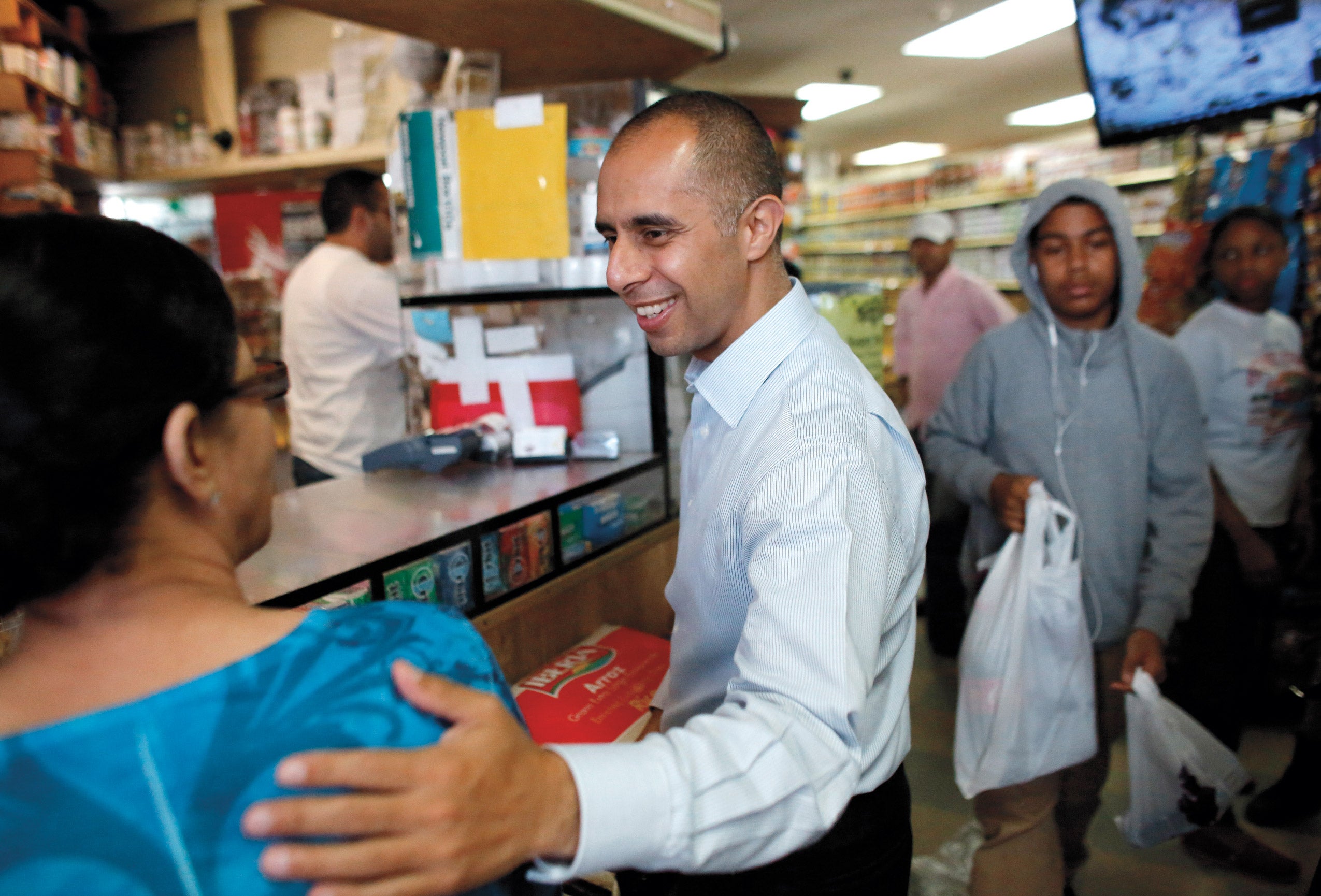Jorge Elorza ’03 was nine months out of college working as an auditor in New York in early 1999 when his father called with news that a childhood friend back in Providence, Rhode Island, had been shot to death.
Elorza decided to move home to Providence, a path that led to Harvard Law School; work as a legal aid lawyer, law professor, and housing court judge; and finally, his election as the city’s mayor last year, at age 37.
No one would have found his ascent more improbable than Elorza himself. Having been rejected by every college he applied to, Elorza wondered if he’d wind up in the same jewelry or textiles factories where his Guatemalan-immigrant parents had worked with the hope that he would do better. “It was either work in the factories or get my act together,” Elorza said. “So I decided to get serious.”
He enrolled in community college and then transferred to the University of Rhode Island, where he graduated summa cum laude and landed a job with PricewaterhouseCoopers. Elorza returned to Providence after his friend’s death, working with a program helping inner-city kids before enrolling at HLS in the fall of 2000.
Professor David Wilkins ’80 remembered Elorza, an organizer for the “living wage” campaign for workers on the Harvard campus, as a “very engaged” student who “spoke about issues that were really of deep concern to him, mostly around fairness and equality and social justice.”
After graduation, Elorza said, he “represented people on the brink of homelessness” as an attorney in Rhode Island Legal Services’ housing unit and then taught housing law at Roger Williams University.
In 2010, Providence’s mayor appointed Elorza to serve on the city’s housing court, where he prodded banks into fixing abandoned residential properties. He held some of the nation’s largest banks in contempt for failing to properly maintain the properties, issued six-figure fines and even threatened to arrest their presidents. “All the banks except one took responsibility for the abandoned properties far beyond what I had the power to do,” Elorza said.
Elorza left the bench to explore a mayoral run after the incumbent announced plans to run for governor. He formally launched his campaign in November 2013 while standing outside his childhood home, which is now part of a homeless shelter. “Just as others have invested in me,” he said, according to the Providence Journal, “I believe it is my responsibility to invest in others. And as mayor, I will fight to make sure that others have these same opportunities and supports that I’ve been so fortunate to have.”
In what Elorza described as a “long, hard slog,” he first defeated the City Council president in the Democratic primary and then, in the general election, faced Vincent A. “Buddy” Cianci Jr., who had served six previous terms as mayor—as well as four-plus years in federal prison on corruption charges.
“Jorge knew exactly what he had to do to be a viable candidate, and he went ahead and did it,” said Darcy Paul ’03, a friend of Elorza’s since their 1L year, who himself was elected to the Cupertino, California, City Council last November.
Elorza said he raised “just shy of” a million dollars—enough to fund his first television ad only a couple of weeks before Election Day, but far less than his colorful and well-known opponent.
“It was a risky campaign,” said Wendy Schiller, a Brown University political science professor. “He wanted to portray himself as the everyman mayor, someone who is sincere and didn’t have a lot of flash but would be a good, honest mayor.”
On Election Day, Elorza won by a 10-point margin, and he took the oath of office as Providence’s 38th mayor in January. A winter blizzard almost immediately delivered the first test of his leadership.
“He’s doing very well at it, and I expect him to continue to do well at it,” said Schiller. “He’s a very smart guy, and if he proves he can run the city well, he’s attractive not only in Rhode Island but nationally. So the question is: Can we hold on to Mayor Elorza?”
